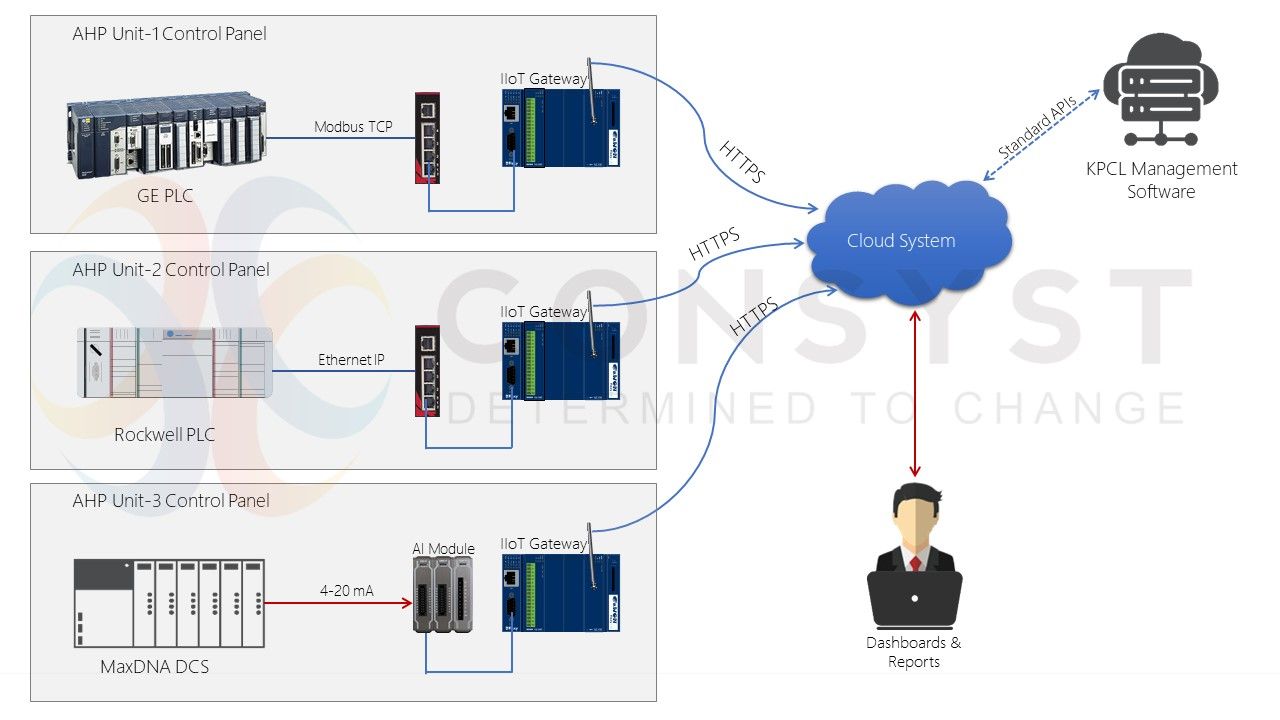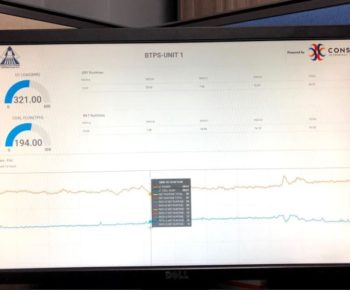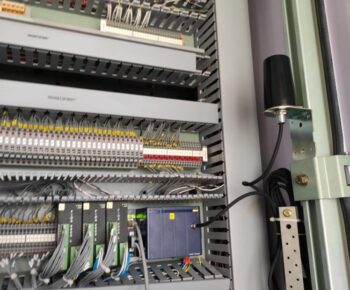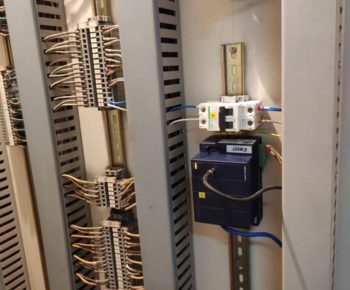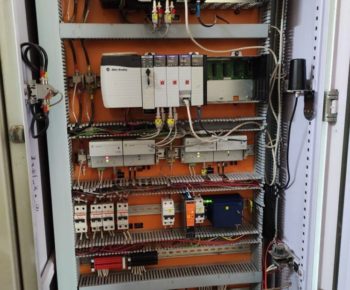End User
Karnataka Power Corporation Limited (KPCL), an electrical power generating company owned by the government of Karnataka. The modes for generation of electric power are hydroelectric, thermal, diesel, gas, wind and solar. KPCL began its journey with a humble beginning in 1970 with an installed capacity of 746 MW which has expanded its capacity to 8738.305 MW in 2019.
Scope
Design, Supply and Commissioning IIoT System to collect and integrate Ash Handling Plant data to KPCL’s Cloud based Management Software. The project includes Design, Engineering, Manufacturing, Testing and Commissioning of 3 IIoT based Data Acquisition Systems, and providing Cloud Service for Data monitoring.
Background
In India, 70 percent of the electricity generated is from coal based thermal plants. Indian coal is of low grade with ash content of the order of 30-45 % in comparison to imported coals which have low ash content of the order of 10-15%. 75 percent of this coal would go to thermal power plants and large quantities of fly ash, a residue of burning of pulverized coal and lignite is, thus being generated at Power Stations in the country, which not only requires large areas of precious land for its disposal but is also one of the sources of pollution of both air and water. The management of fly ash has been troublesome in view of its disposal.
Integration of the Internet of Things (IoT) offers a wide number of applications in the energy sector, which includes reducing environmental impacts of energy use as well. IIoT can be collaborated with the collection, storage and disposal facilities of fly ash so that fly ash could be made available to its users. The App can give plant-wise and utility-wise status. This allows effective monitoring and reviewing for increasing ash utilization.
System Description
At KPCL Thermal Power Plant, CONSYST implemented an advanced fly ash handling formula by integrating IIoT with their management software. We integrated data from OT systems like PLC and DCS to their software hosted in a cloud thus enabling real time monitoring.
DAQ system collects the parameters from AHP of Unit 1, 2, and 3. The DAQ system has an IIoT gateway, which can read data from different Controllers, and devices through Industrial communication Protocols and push the data to IIoT Platform on cloud. The PLCs at Unit 1 and 2 supports Modbus TCP & Ethernet/IP Communication respectively. So the data can be read from these PLCs through these protocols. MaxDNA DCS system at Unit 3 doesn’t support third party communication protocols, so the data from Unit 3 was available only on Analog (4-20mA) Signals. These signals were integrated to Analog Input modules provided with our DAQ system. The consolidated data from the cloud IIoT Platform are integrated to KPCLs Management Software through REST APIs.
Result
- By implementing IIoT integration with Management Software the plant is able to improve its fly ash utilization effectively.
- Helped in protecting the environment in terms of reduction in soil pollution, saving precious top soil and conservation of land for sustainable development.

